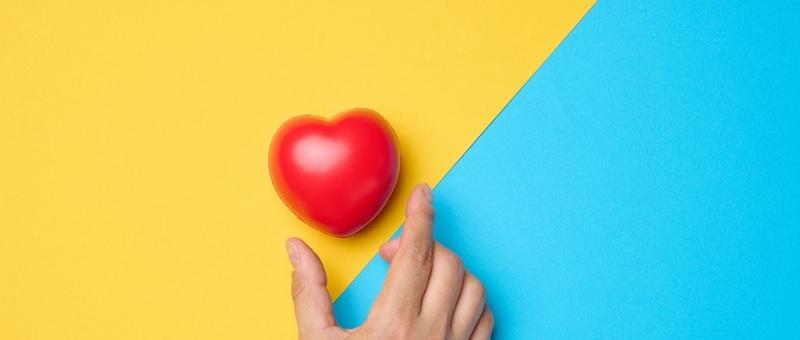
Exam time: stress-relieving toys and gadgets
Peer reviewed by Dr Krishna Vakharia, MRCGPLast updated by Amberley DavisLast updated 9 May 2024
Meets Patient’s editorial guidelines
- DownloadDownload
- Share
- Language
- Discussion
Stress toys - such as fidget spinners, stress balls, and cubes - are a popular way to help manage stress and anxiety, and they are never more popular than during exam time.
But are these gadgets just a fad, or is there any point to them? We explore the most popular stress-busting tools and the science behind them.
In this article:
Continue reading below
Stress management toys
Childline data from 2023 shows that children seeking counselling over exam stress increased by 10% from the previous year1. With concerns around children's mental wellbeing on the rise, we ask if stress toys are a good investment around exam season.
1. Fidget spinners
Back to contentsMany fidget spinner manufacturers claim the gadget relieves ADHD, autism and anxiety2. There is some research that fidgeting - for example, jiggling legs - can help children with ADHD to concentrate. Some small scientific studies have also found fidget spinners to help anxiety3, but this research is limited and there remains a lack of strong scientific evidence around these fidget toys - and little to no studies on their use during exams.
Continue reading below
2. Stress balls and toys
Back to contentsStress balls are designed to help relieve tension and stress - the idea is that when you tighten and then release your fist, it helps you let go of the angst too. It's thought that strengthening your nerves and muscles through stress ball squeezing may benefit your nervous system, controlling the release of stress hormones. However, study results are mixed - some report improvements in stress, while others do not4.
When it comes to their use in education, there is evidence that stress balls can help university students feel less nervous5. These sensory toys may even help young people in exams in other ways - by improving their ability to focus on the task at hand6.
3. Wire head massagers
Back to contentsAccording to some, a wire-based head massager can help relax muscles in your neck that tense up when you're stressed. There may not be many studies on head massager gadgets, but head massage is an ancient ayurveda-based technique that's proven to relieve anxiety7.
Head massage also stimulates your nerve endings and increases blood flow, which not only helps to reduce stress hormone levels, but has been found to lower blood pressure and heart rate8. Still, a head massager isn't a subtle stress toy and students may prefer to use during private study time than in an exam room.
Continue reading below
4. Therapy putty
Back to contentsMuch like stress balls, putty toys, sometimes known as silly putty or thinking putty, may help alleviate mental stress through the physical act of squeezing, stretching, and releasing. The putty is designed to resist and reform with each stretch, which many claim helps soothe and distract from anxious thoughts.
Some claim putty also helps you process your thoughts while you play - but the majority of evidence is anecdotal, and there's little to no scientific evidence on putty for student stress.
5. Stress relief apps for young people
Back to contentsMobile apps designed to reduce stress are becoming increasingly popular and there are several on the market, from mindfulness meditation apps to therapy apps. The trouble is, not all of these apps are designed with a young person's attention span in mind.
In contrast, Recolor is an anti-stress colouring-in app that champions interaction, activity and fun as a means of stress relief. If your child needs to be distracted by something relaxing and creative during exam season, this app is a great option.
6. Mindfulness remotes
Back to contentsFor children and young adults navigating exam anxiety, interactive electronic tools are popular modern stress toys. According to a study by Brunel University, 86% of children who used Stix Mindfulness Remotes felt happier and less stressed after four weeks9. These remotes offer enjoyable activities that are especially useful for younger children who need stress-relief and entertainment packaged as one.
While all these stress toys and gadgets may be a fun distraction, they're no substitute for medical help if you have anxiety. Finding a solution that helps you relax and manage your feelings is an important factor in relieving anxiety, so talk to your doctor if you're struggling. A healthy diet and regular physical activity is also particularly important during times of stress.
Further reading
Back to contentsNSPCC: 10% increase in counselling sessions about exam stress since the pandemic.
NPR: Whirring, Purring fidget spinners provide entertainment, not ADHD help.
Srivarsan et al: An evaluation on use of stress ball exercise on stress management among student population.
Stalvey and Brasell: Using stress balls to focus the attention of sixth graders.
Kim et al: The effect of a scalp massage on stress hormone, blood pressure, and heart rate of healthy female.
Stix Mindfulness: Independent study statistics.
Patient picks for Stress management

Mental health
How to be a calm parent when you're stressed
Being a parent can be testing. When you’re sleep deprived, it's difficult to balance your own needs with those of a child who won't eat their breakfast or get ready for school. Even the most laid back Mums and Dads can feel their stress levels rising - so how can you help yourself to stay calm during trying times?
by Lydia Smith

Mental health
How to practise self-care
Self-care is a term that resurfaces time and time again. But is it more than just a buzzword? We explore what it really means and how it can benefit your overall health.
by Victoria Raw
Video picks for Stress management
Article history
The information on this page is peer reviewed by qualified clinicians.
Next review due: 9 May 2027
9 May 2024 | Latest version
25 Aug 2017 | Originally published
Authored by:
Gemma Grange

Ask, share, connect.
Browse discussions, ask questions, and share experiences across hundreds of health topics.

Feeling unwell?
Assess your symptoms online for free
Sign up to the Patient newsletter
Your weekly dose of clear, trustworthy health advice - written to help you feel informed, confident and in control.
By subscribing you accept our Privacy Policy. You can unsubscribe at any time. We never sell your data.